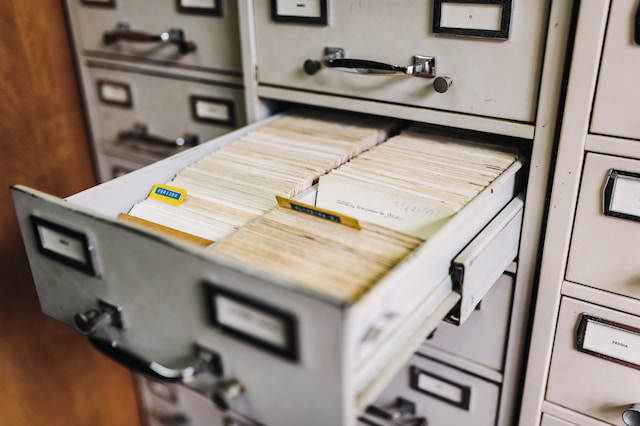How to Keep Accurate Business Records

The record keeping requirements of businesses are covered in a variety of different areas. The trick is to understand both how business records must be kept, and the penalties for non-compliance. Let’s look at what you need to do to keep accurate business records.
What are good business records?
Business records are necessary for any business. If the records are lost, stolen, or damaged, the business can lose money, time, or customers. As a business owner, you should know how and where to keep the records.
Business records should be kept where they can be easily found and are safe from fire, water, and natural disasters. Records should be organized for easy access and retrieval by the bookkeeper.
What is the importance of keeping accurate business records?
Small businesses are the backbone of the American economy. According to the U.S. Small Business Administration, there are more than 28 million small businesses in the United States, and they account for 54% of all jobs.
Given the importance of small businesses to our economy, it’s not surprising that the IRS devotes a lot of time and effort to ensuring that these businesses maintain accurate records. Failing to do so can lead to stiff penalties from the IRS.
So what are the specific benefits of keeping accurate business records?
1. Documentation of income and expenses.
Maintaining good records of your income and expenses is the key to understanding how your business is performing financially. By tracking your income and expenses, you’ll be able to see where your business is making money and where it’s losing money. This information can help you make informed decisions about how to run your business more efficiently.
2. Tax deductions.
Keeping accurate records also allows you to claim legitimate tax deductions for your business. This can result in significant savings at tax time.
3. Evidence in case of an audit.
One of the main reasons to keep accurate records is to have documentation in case of an audit. If the IRS ever comes to audit your business, you’ll be able to easily provide them with the records they need to verify your income and expenses.
4. Easier bookkeeping.
By keeping good records, you’ll make it much easier to keep track of your bookkeeping transactions. This will save you time and money in the long run.
In short, there are a number of important reasons to keep accurate business records. They can help you understand your business’ financial status, claim tax deductions, and defend yourself in the event of an audit.
What to keep track of
There are many different recordkeeping systems, but the most important aspect is to find one that works for you and your business.
Here are a few tips on what to keep track of:
– Keep a copy of all contracts, proposals, and invoices.
– Track your expenses. Keep receipts and track your spending. This will help you stay organized and see where you can cut costs.
– Keep a list of your customers and their contact information. This will help you keep track of their orders.
– A list of your suppliers and their contact information. This will help you find new suppliers if needed.
– Inventory. This will help you keep track of what you have and what you need to order.
– A copy of your business license and tax ID number. This will provide proof of your business to a client or supplier.
Having a good system for tracking your business records will help you stay organized and make running your business a little easier.
Tools to use for recordkeeping
There are a number of different tools that can be used for recordkeeping, depending on the size and complexity of the organization. Some of the most common tools include:
Microsoft Excel
– This spreadsheet software is commonly used for creating and managing lists of information.
Microsoft Word
– This word processing software can be used to create and store documents with information about the organization.
Google Docs
– Similar to Microsoft Word, this online word processing and spreadsheet software can also be used to create and store documents with information about your business.
Customer Relationship Management (CRM) Software
– This software is used to manage customer data and interactions.
These are just a few of the many different types of software that can be used for recordkeeping. The most important thing is to find software that is compatible with the size and complexity of the organization, and that is user-friendly for all who will be using it.
Conclusion
If you are like most business owners, you probably already have quite a few business records. However, with all the different taxes and regulations that are involved with running a business, you’re likely to need some extra business records in the future.
